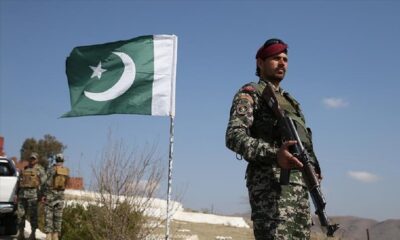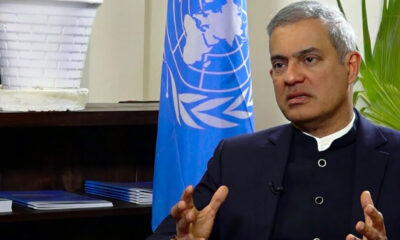Latest News
Japan to ask athletes from Afghanistan, five countries for more COVID-19 tests

Japan plans to ask Olympic athletes from Afghanistan and five other countries hit hard by the highly infectious Delta variant of the coronavirus to have daily virus tests for seven days before leaving for the Games, a Japanese newspaper said on Sunday.
Currently, all overseas athletes are being asked to have coronavirus tests twice during the four-day period before their departure for the Tokyo Olympics, which are set to start on July 23 after a year’s delay due to the pandemic.
The Japanese government aims to put the new rule, which will be applied to athletes from India, the Maldives, Nepal, Pakistan, Sri Lanka and Afghanistan, into effect on July 1, the Yomiuri Shimbun reported, without citing sources.
Olympics Minister Tamayo Marukawa said on Friday a member of the Ugandan Olympic team who tested positive for the coronavirus upon arrival had the Delta variant, adding to concern the Games may trigger a new wave of infections.
Latest News
UN warns of triple crisis in Afghanistan: drought, migrant return and funding shortfalls
Ratwatte emphasized the critical need for continued support for essential programs in health, education, and social protection, calling these initiatives “life-saving” for the Afghan population.
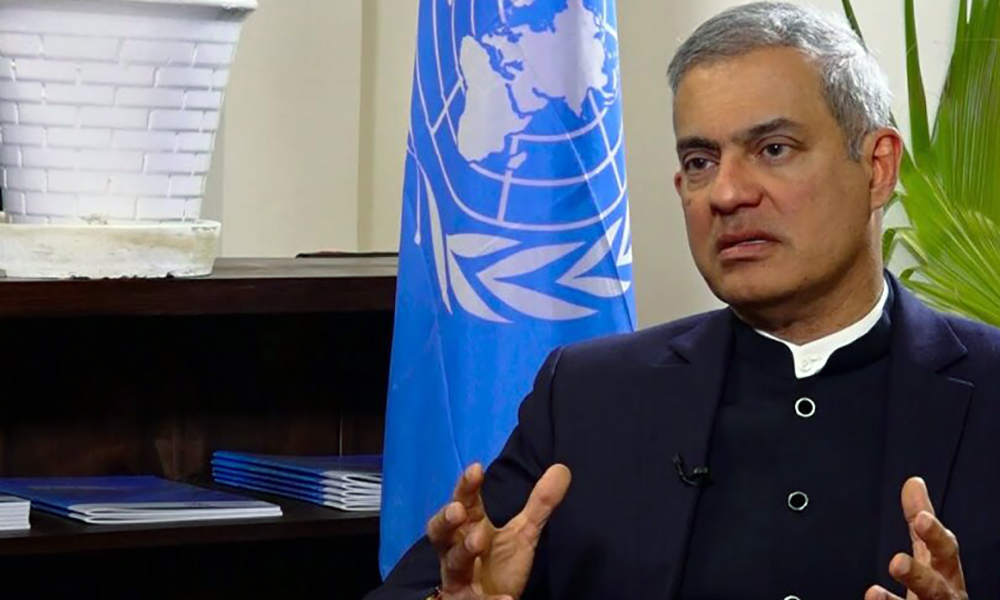
The United Nations has raised an urgent alarm over Afghanistan’s worsening humanitarian crisis, citing three simultaneous challenges that are significantly straining the country’s stability and welfare. The crises include a devastating drought, the mass return of migrants, and a sharp decline in international aid.
Andrika Ratwatte, the UN’s Humanitarian Coordinator in Afghanistan, delivered the warning in a recent video message, highlighting the severe impacts of these interconnected issues. Ratwatte reported that approximately 70 percent of Afghanistan’s population, reliant on agriculture for their livelihoods, has been affected by the ongoing drought, exacerbating widespread food insecurity.
In addition, the return of 2.5 million Afghan migrants from neighboring Iran and Pakistan, combined with a global financial downturn, has significantly hindered humanitarian efforts. The crisis has placed immense pressure on Afghanistan’s already fragile humanitarian infrastructure, which was already facing a shortage of resources and aid.
The UN official also expressed concern about funding shortfalls, noting that only 37 percent of the UN’s humanitarian funding appeal for Afghanistan has been met so far. This has led to the closure of 400 humanitarian health centers across the country, leaving over 3 million people without access to basic healthcare. Similarly, 300 nutrition centers have shut down, impacting more than 80,000 vulnerable individuals, including children and breastfeeding mothers.
Ratwatte emphasized the critical need for continued support for essential programs in health, education, and social protection, calling these initiatives “life-saving” for the Afghan population.
Adding to the urgency, John Aylieff, the World Food Programme (WFP) Director in Afghanistan, described the country’s growing malnutrition crisis as “heartbreaking.” He warned that within the next year, an estimated five million women and children could face severe malnutrition, with nearly four million children requiring immediate treatment.
The International Federation of Red Cross and Red Crescent Societies (IFRC) also expressed concern over the large-scale return of Afghans in 2025, warning that it has further strained Afghanistan’s fragile humanitarian conditions.
The UN has expressed hope for improved conditions in 2026, particularly for women and girls, who represent half of Afghanistan’s population. Efforts to restore healthcare, education, and social programs are seen as vital for the country’s long-term recovery and stability.
Latest News
Afghanistan appoints Charge d’Affaires in India amid growing engagement
Jaiswal also pointed to ongoing cooperation in trade and logistics, highlighting recent ministerial-level visits from Afghanistan to India.

Afghanistan has formally appointed a diplomat as Charge d’Affaires (CDA) in India, with the official assuming duties on January 9, marking a further step in diplomatic engagement between the two countries, Indian officials confirmed.
Speaking at a weekly press briefing on Friday, India’s Ministry of External Affairs spokesperson Randhir Jaiswal said the move follows earlier steps taken by both sides to elevate diplomatic contacts. He noted that India had previously upgraded its technical mission in Kabul to the level of an embassy and designated its head as Charge d’Affaires. “In line with this approach, now the Afghan side has also sent a diplomat who is their CDA, and the CDA has taken charge as of 9th of January,” Jaiswal said.
Jaiswal also pointed to ongoing cooperation in trade and logistics, highlighting recent ministerial-level visits from Afghanistan to India. He said discussions have included proposals for a freight corridor to facilitate trade in pharmaceuticals, fruits, and other essential goods.
According to Afghan officials, Noor Ahmad Noor, a senior official from the Ministry of Foreign Affairs, has arrived in New Delhi to assume responsibilities as Charge d’Affaires at the Afghan mission. The appointment follows an understanding reportedly reached during Afghan Foreign Minister Amir Khan Muttaqi’s visit to New Delhi in October 2025, when he met Indian External Affairs Minister S. Jaishankar.
Officials on both sides have stressed that the appointment does not amount to formal recognition of Afghanistan’s current government, but reflects continued dialogue and practical engagement.
The development is seen as a sign of strengthening diplomatic interaction and potential expansion of bilateral cooperation between India and Afghanistan, particularly in trade and regional connectivity.
Latest News
IEA reports distribution of over 3,000 land plots to returning refugees

Hamdullah Fitrat, deputy spokesman for the Islamic Emirate, has stated that following a special meeting of the High Commission for Addressing the Problems of Migrants, chaired by Sheikh Hibatullah Akhundzada, the Supreme Leader of the Islamic Emirate of Afghanistan, the process of land distribution by the Permanent Committee for Refugee Settlement has been accelerated.
Fitrat said in a statement on Friday that so far, 3,046 plots of land have been distributed by the committee to refugees who were forcibly expelled and have recently returned to the country, across various provinces.
The distribution process continues for others as well, he added.
He stated the process of providing winter assistance to returning refugees in different provinces has also been accelerated. This aid includes food and non-food items as well as cash assistance.
-
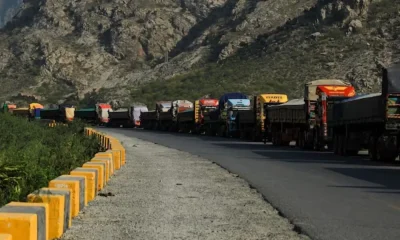
 Latest News4 days ago
Latest News4 days agoPakistan approves re-export of stranded Afghan transit trade cargo
-

 Latest News4 days ago
Latest News4 days agoUzbekistan pushes forward with Trans-Afghan railway project
-
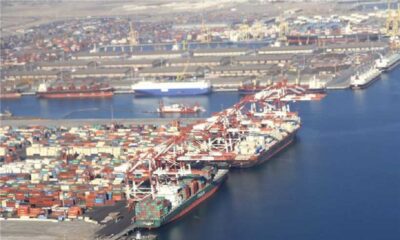
 Latest News4 days ago
Latest News4 days agoIndia rejects claims of suspending trade with Afghanistan
-

 Latest News3 days ago
Latest News3 days agoAfghanistan and Indonesia call for expanding bilateral cooperation
-

 Latest News2 days ago
Latest News2 days agoAfghan envoy in UAE holds talks with Etihad Airways on launch of direct flights
-
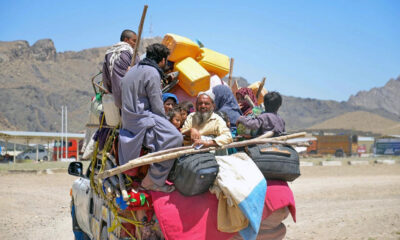
 Latest News3 days ago
Latest News3 days agoPakistan repatriates nearly 1 million illegal Afghans through Khyber Pakhtunkhwa
-

 Latest News3 days ago
Latest News3 days agoChinese envoy, Afghan official discuss ways to strengthen tourism cooperation
-

 Latest News4 days ago
Latest News4 days agoDABS names Abdul Haq Hamkar as new CEO




